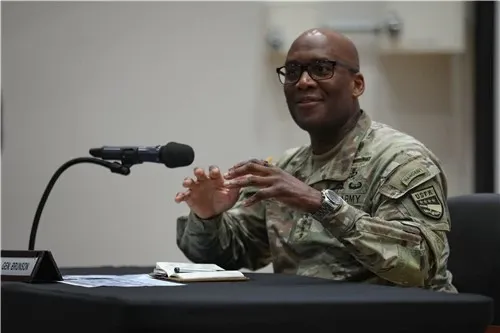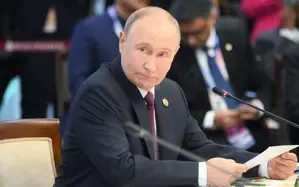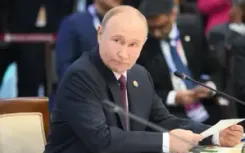Could Taking 'Shortcuts' in OPCON Transition Affect Readiness in South Korea?

Synopsis
Key Takeaways
- Shortcuts in OPCON transition could threaten military readiness.
- Importance of adhering to mutually agreed conditions.
- Modernization of the alliance is crucial for regional security.
- Focus on enhancing South Korea's defense capabilities.
- Alliance strength counters threats from North Korea, China, and Russia.
Seoul, Aug 10 (NationPress) The leader of the US Forces Korea (USFK) cautioned that adopting "shortcuts" in the transfer of wartime operational control (OPCON) from Washington to Seoul could jeopardize the readiness of forces stationed on the Korean Peninsula.
General Xavier Brunson emphasized the importance of adhering to the conditions mutually agreed upon for the OPCON transition. This topic is likely to be a significant discussion point during the upcoming historic summit between South Korean President Lee Jae Myung and US President Donald Trump later this month.
"If we opt for shortcuts, it could compromise the readiness of our forces on the (Korean) Peninsula," Brunson remarked to reporters during a visit by the South Korean defense press corps to the US military base Camp Humphreys in Pyeongtaek, approximately 60 kilometers south of Seoul, on Friday.
"The conditions were established for specific reasons ... rushing the process just to claim completion does not serve the best interests of either of our nations," he stated, further noting that any adjustments to the plan must include measures to maintain military peace on the peninsula.
Seoul and Washington are collaborating on a "conditions-based" OPCON transfer. Key conditions include South Korea's ability to lead combined forces, its strike and air defense capabilities, and a favorable regional security landscape for such a transition, as reported by Yonhap News Agency.
The OPCON transfer was originally slated for 2015 but was postponed, as the allies agreed in 2014 to a conditions-based handover due to the escalating nuclear and missile threats from Pyongyang.
While reaffirming his commitment to safeguarding allies from threats, including North Korea, which he termed the "closest alligator to the boat," Brunson highlighted the necessity for changes to align with the "markedly different" security environment in Northeast Asia compared to when the alliance was formed 75 years ago.
"We face a nuclear-armed adversary just north of the border. There's increasing Russian involvement, along with the DPRK, and we must also contend with the threats posed by China to a free and open Indo-Pacific," the commander explained. DPRK is the acronym for North Korea's official name.
"I believe that modernizing the alliance is crucial to ensure our readiness, relevance, and capacity to effectively address any evolving security challenges together," he added when asked about his interpretation of the concept.
In a related statement, a Pentagon official indicated that the allies' modernization efforts include enhancing cooperation to guarantee credible deterrence on the Korean Peninsula and beyond, while stressing a primary focus on countering North Korean threats.
Against this backdrop, the USFK commander expressed his belief that adjustments should be made within the 28,500-strong force, but he refrained from discussing specifics regarding potential reductions for "strategic flexibility."
"The conversation should not revolve around numbers. It should focus on capabilities," Brunson asserted.
"Redistributing those capabilities could provide significant protection. Utilizing existing resources in innovative ways may enhance our security," he remarked.
Brunson cited the temporary relocation of Patriot batteries to the Middle East for strategic flexibility, noting they would return for upgrades with the latest equipment.
On the Korean side, the USFK commander emphasized the need for South Korea to strengthen its capabilities to address threats from North Korea.
"Korea is expected to enhance its defenses against the DPRK, allowing for flexibility as we modernize our alliance to pursue other objectives," he stated, emphasizing that decisions will be made based on each government's national interests.
Amid security challenges and potential changes for the allies, Brunson expressed confidence in the resilience of the 75-year alliance, describing it as the "envy of the world" capable of countering any threats.
"Our asymmetric advantage lies in our alliance. It counters anything posed by the DPRK, China, or Russia. Being united in alliance is our strength."









